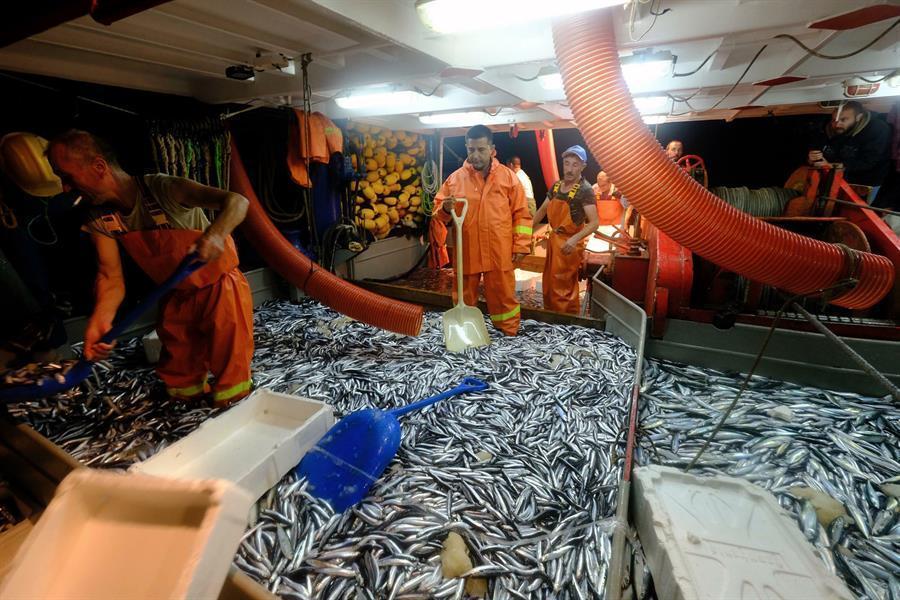
Fishing season in Turkey kicked off on Sept. 1 after a four-and-a-half-month ban, as fishermen hoped for a fruitful season.
Fishermen set out to sea on the night of Aug. 31 in coastal cities by saying “Vira Bismillah,” meaning “raising the anchor in the name of God.”
A fishing ban is imposed every year between Apr. 15 and Sept. 1 to preserve fish eggs and ensure sustainable fish farming.
A ceremony was held on the night of Aug. 31 in Istanbul’s Poyrazköy – a fishing village on the way from the Bosporus to the Black Sea – to celebrate the re-opening of the fishing season. The ceremony was attended by President Recep Tayyip Erdoğan and Agriculture and Forestry Minister Bekir Pakdemirli.
“Hopefully, as of tonight, our fishermen will set sail for the seas by saying ‘Vira Bismillah’ and earn their daily breads for the upcoming 7.5 months. I wish a fruitful and successful season for all our fishermen brothers. I wish that your nets are always full,” Erdoğan said during the ceremony.
“Turkey, which is surrounded by seas on three sides, sits on one the best locations of the world climate-wise and geographically. We have 26 million hectares of water surface area, in terms of sea, natural lake, dam lake and pond waters. In our seas, there are 500 fish varieties, and this number is 370 for our territorial waters. Some 100 of these species are caught for commercial purposes,” said Erdoğan.
“Every year, we obtain about 600,000-700,000 tons of fish every year. In 2018, we have obtained a total of 628,600 tons of fish, 314,000 tons from fish hunting and 314,600 tons from fish farming,” Erdoğan said.
The president also said that the aquaculture sector in Turkey provides direct employment for 53,000 people and indirect employment for 250,000 people.
Meanwhile, the head of the aquaculture cooperatives association in Istanbul, Erdoğan Kartal, told state-run Anadolu Agency that the number of fish in Turkish seas is in decline.
“Immediate measures should be put into effect. This year, there will be almost no bonito. There is anchovy, but it is too small in length. It will take time for it to grow bigger,” he said.
Experts blame pollution, climate change and irresponsible fishing for the decreasing number of fish in the last decades.
Karal also said that the fish prices will be relatively higher for consumers at the beginning of the season but will eventually decrease as more fish are caught.
“When all the boats start to hunt, all fish, naturally, will start pouring in the market. And they will come from the Black Sea, the Marmara Sea and the Aegean Sea. And the variety will increase and naturally the prices will decrease,” he said.